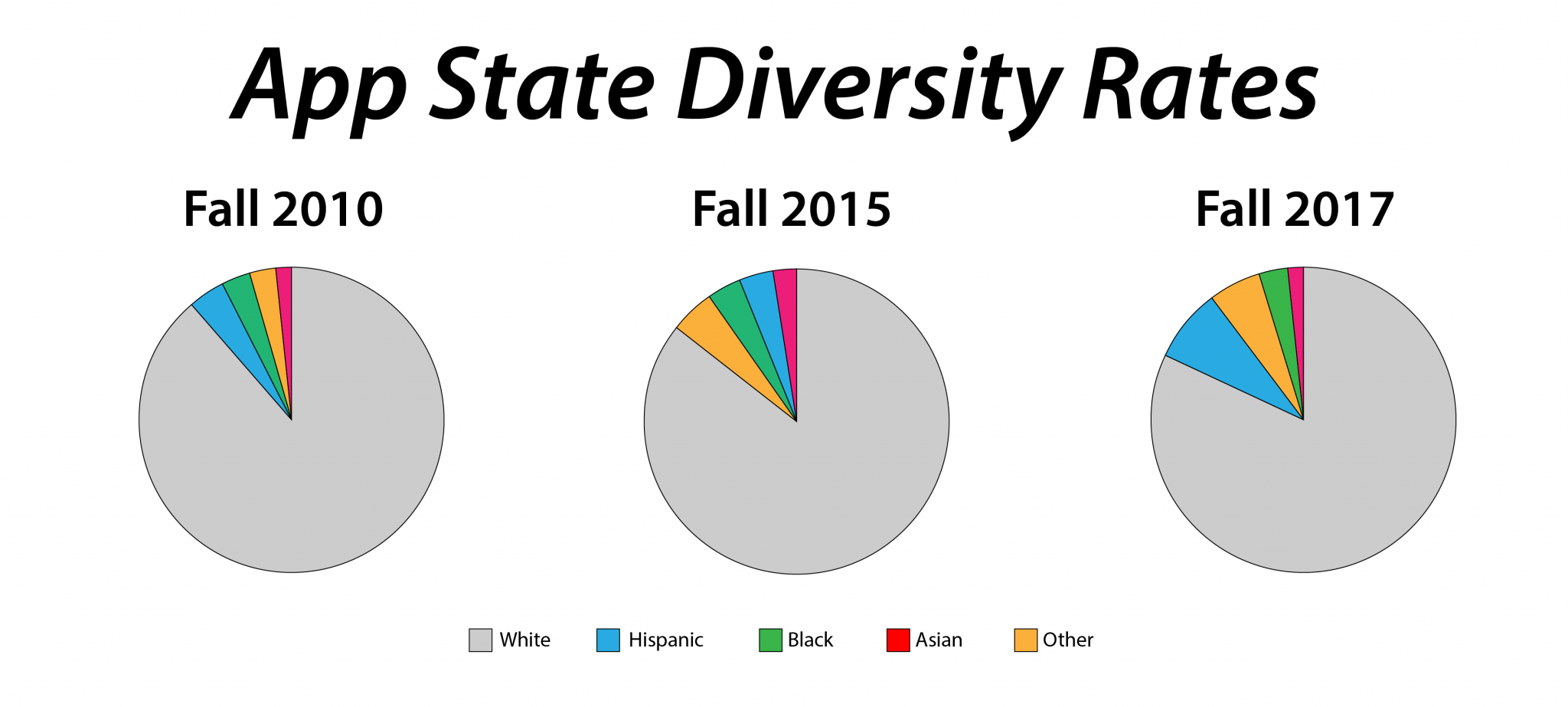BOONE—Appalachian State University welcomed its most diverse class to date this fall, with 18 percent identifying as traditionally underrepresented, Willie Fleming, the university’s chief diversity officer, said.
App State tracks statistics regarding the university’s diversity on the Institutional Research, Assessment and Planning website. Fleming said that he believes it is important to take note that the “total enrollment of underrepresented students increased by 10 percent from last year,” and “the percent of the total underrepresented students has increased by more than 52 percent since 2012.”
The term “traditionally underrepresented” refers to the combined percentage of students who self-identify as Hispanic of any race, American Indian, Alaska Native, black or African American, Asian, Native Hawaiian or other Pacific Islander, two or more races or are a nonresident alien, Fleming said.
Specifically, Appalachian’s Hispanic-Latino student population has increased by 25.4 percent, which equates to 214 students.
The chancellor’s commission on diversity proposed 14 diversity initiatives in 2015 that included creating a formal mentoring program for students from underrepresented groups, conducting a campus climate survey every three years, annual focus groups assessing the inclusive nature of the campus and increasing awareness of university policies and student conduct processes related to individual and group harassment and discrimination.
The Inclusion Infusion Summer Institute allowed the Appalachian staff to explore how various constituent groups define, experience and evaluate inclusion at Appalachian, Fleming said.
“Informed by our work over the past year, we have developed an inclusive Diversity Institute that will teach professors how to transform their exclusive course syllabi to more inclusive and transformative formats,” Fleming said.
Students involved in diversity efforts on campus, such as the Multicultural Center and the LGBT Center, said they appreciated the initiatives being taken, but believed there is room to improve.
“Although there are more students from marginalized communities being accepted, more efforts need to be made to keep them here,” Jonathan Nail, a senior political science major, said.
“It makes me happy seeing more people of color on campus, and it’s not just people of color. You definitely see a lot more queer people and a lot more women on campus and that makes me very happy,” Destinee Williams, a junior psychology major, said. “While Appalachian State has a lot of room to improve, they’re doing okay.”
“We will continue to study campus climate to assess how we value, respect and support members of our underrepresented groups, as well as the general campus community,” Fleming said. “I am committed to dismantling bias and other discriminative actions that deny opportunities, access and the rights of members of our campus community. We will continue to encourage faculty towards inclusive and transformative education to be infused into the core curriculum.”
Story by; Rachel Greenland, News Reporter
Graphic by; Nora Smith, Graphic Design Editor

